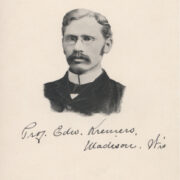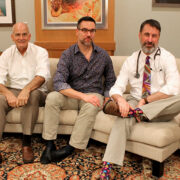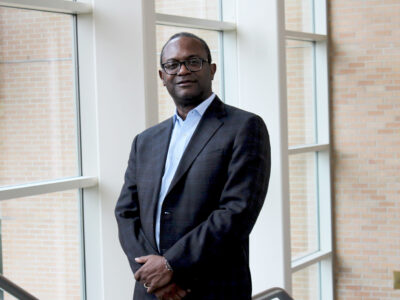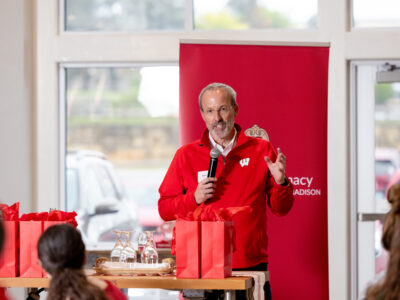
13
December

As UW–Madison celebrates 175 years, the School of Pharmacy reflects on more than a century of pioneering excellence
By Katie Gerhards
On October 2, 1883, just 35 years after the founding of the University of Wisconsin–Madison, the campus’ Pharmacy Department began instruction for the first time, with a class of 27 students. It was just the second state university pharmacy program in the U.S.
That small class, held in South Hall, marked the beginning of a long tradition of innovation in pharmacy education, practice, and research.
As UW–Madison marks its 175th anniversary, the School of Pharmacy reflects on how the School and the field of pharmacy have evolved over the past 140 years, fueled in part by the contributions of faculty, staff, and alumni.
Where it started: The Pharmacy Department at UW–Madison was created by an act of legislature, when there were just 12 schools of pharmacy in the U.S.
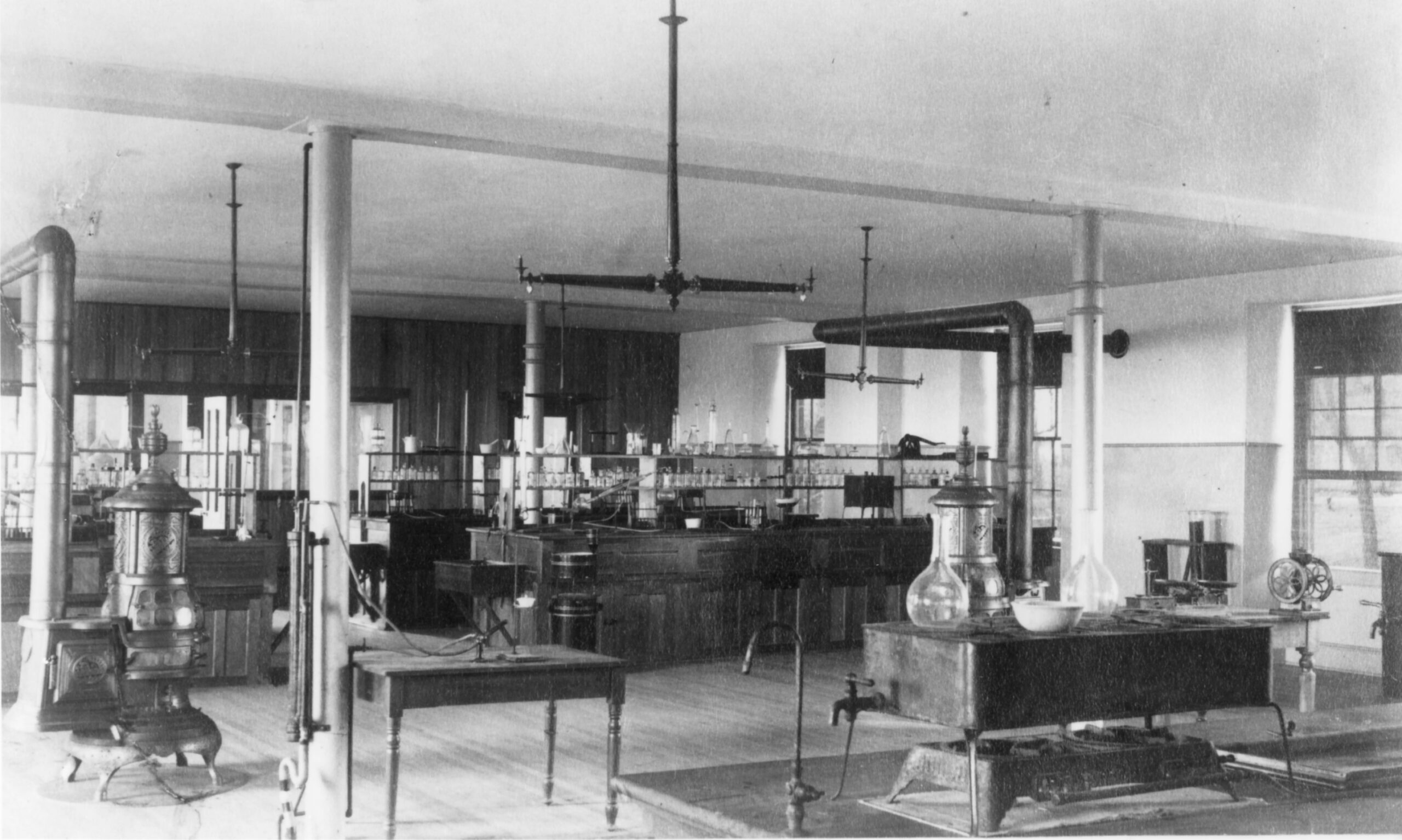
“In 1883, the vast majority of pharmacists were apprenticeship-trained only,” says Greg Higby, Fischelis Scholar with the American Institute of the History of Pharmacy and senior academic curator at the School of Pharmacy. “There were no educational requirements to gain state licensure. Apprenticeship usually lasted four or five years, with a trainee working in a pharmacy, wholesaler, or manufacturer.”
Just nine years after holding its first class, the UW Department of Pharmacy would kickstart a controversy that would reshape pharmacy education. Edward Kremers (PhG 1886, BS 1888), then director of the UW Department of Pharmacy, presented a harsh critique of the state of pharmacy education at an annual meeting of the American Pharmaceutical Association. His primary goal was to expand the pharmacy curriculum to include courses in humanities and history, envisioning a four-year bachelor’s degree program.
Despite pushback from local and national organizations, Kremers implemented an optional four-year program at UW, and the campus awarded the nation’s first four-year bachelor’s degree in pharmacy in 1895. By 1932, the four-year curriculum became the national standard.
More firsts: The four-year pharmacy degree was far from the only trend-setting pharmacy program launched at UW–Madison. In 1893, the UW Department of Pharmacy awarded the first master’s degree in pharmacy. In 1902, the campus awarded the first PhD in a pharmaceutical specialty in the U.S., followed by the first PhD in pharmacy in 1917.
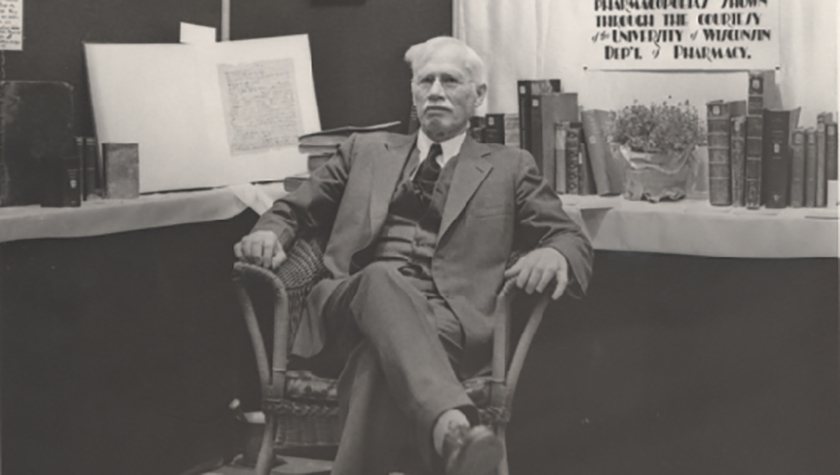
Embracing the humanities as Kremers insisted, the UW awarded the first PhD in the history of pharmacy in 1953, to Glenn Sonnedecker (MS ’50, PhD ’53), and established the first graduate program in the social studies of pharmacy in 1963. Two decades later, in 1985, the School established the first center in the nation to focus specifically on health services research in pharmacy: the Sonderegger Research Center for Improved Medications Outcomes (SRC).
“The SRC is a national leader in medication use research, collaborating with Wisconsin’s health systems, health care professionals, patients, and their caregivers to improve patient care for all, truly embodying the Wisconsin Idea,” says Professor Michelle Chui, director of the SRC.
The SRC, which focuses on a wide range of medication use issues in Wisconsin and beyond, is also home to PearlRx, the largest pharmacy practice-based research network in the country.
“The UW also established the first state-sponsored Pharmaceutical Experiment Station, in cooperation with the U.S Department of Agriculture in 1913, expanding knowledge of natural medicines and their cultivation,” says Higby. The product of that cooperation still exists today, as the Zeeh Pharmaceutical Experiment Station.
Lasting innovations: Professor Takeru Higuchi joined the School of Pharmacy in 1947. His work in applying the principles of the theoretical science of chemistry to create pharmaceutical dosage forms helped the School of Pharmacy become known as the birthplace of physical pharmacy.
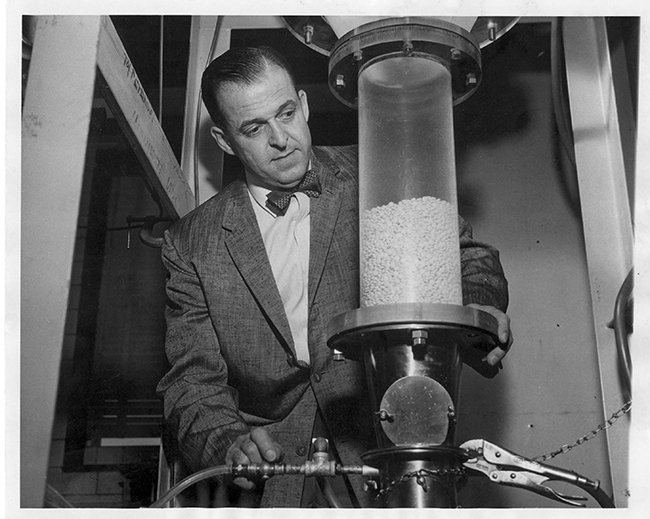
While Higuchi was pioneering in the field of pharmaceutics, his School of Pharmacy colleague, Professor Dale Wurster (BS ’42, PhD ’47), was working to develop a method that continues to be the number one process used for coating tablets, bead capsules for sustained release, and more: the Wurster fluidbed coating process. With the Wisconsin Alumni Research Foundation, Wurster invented and patented his method of applying coatings to tablets and particles in an air-suspension chamber in 1959.
Around the same time, the School of Pharmacy’s continuing education arm, now called the Division of Pharmacy Professional Development, founded the famed Land O’Lakes Conference, which continues to bring scientists and industrialists from across the nation to Wisconsin to learn the newest innovations in pharmaceutical sciences. The conference is coming up on its 67th year.
“These conferences have long been internationally recognized in the pharmaceutical industry,” says Higby.
More recently: Innovation in education at the School of Pharmacy continues. In 2018, the School launched the first-of-its-kind Pharmacy Operations and Technology Management concentration in the PharmD program. Since then, the School has expanded to offer a total of eight concentrations, ranging from applied drug development to rural health, as well as focused Advanced Pharmacy Practice Experience tracks, to help student pharmacists personalize their education.
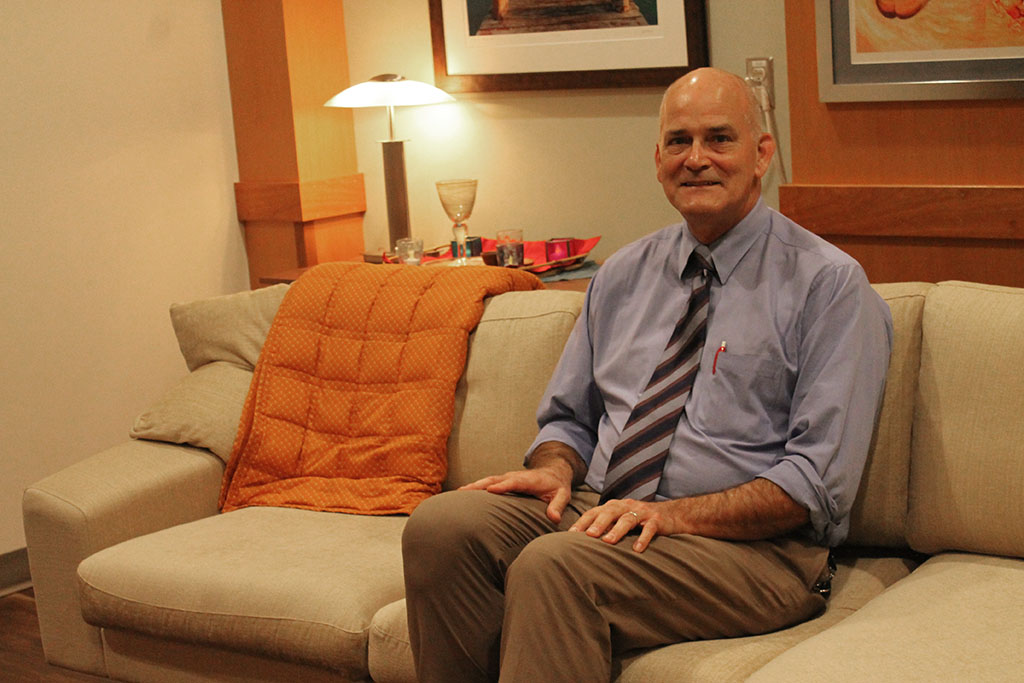
In 2021, the School launched the nation’s first master’s degree program in psychoactive pharmaceutical investigation, which complements the research strength of the new UW Transdisciplinary Center for Research in Psychoactive Substances, housed within the School of Pharmacy.
“We’re proud to be pioneers in this important area for advancing mental health care,” says School of Pharmacy Dean Steve Swanson. “The graduates of this program will go on to address some of the most pressing and hard-to-treat mental health conditions, including depression and PTSD.”
A league of leaders: The School of Pharmacy has long retained its position on the cutting edge of pharmacy education. School of Pharmacy alumni have held 50 president positions with professional pharmacy and pharmaceutical science organizations, including 10 presidencies with the American Association of Colleges of Pharmacy, eight with the American Society of Health-System Pharmacists, nine with the American Association of Pharmaceutical Scientists, and four with the American Pharmacists Association.
Alumni of the School also include a Wisconsin governor: Oscar Rennebohm (PhG 1911), the namesake of the School of Pharmacy’s Rennebohm Hall. He founded Rennebohm Drug Stores, which grew to include more than two dozen locations, and served as governor from 1947 to 1951.
“When I think about educational achievements, I think the best measure is student success, especially post-graduation. Our graduates have consistent success with NAPLEX pass rates and placement rates. They become leaders across the country,” says Professor Beth Martin (BS ’90, MS ’03, PhD ’06), chair of the Pharmacy Practice and Translational Research Division. “And prior to graduation, the impact our student pharmacists make on the community has been recognized nationally as well.”
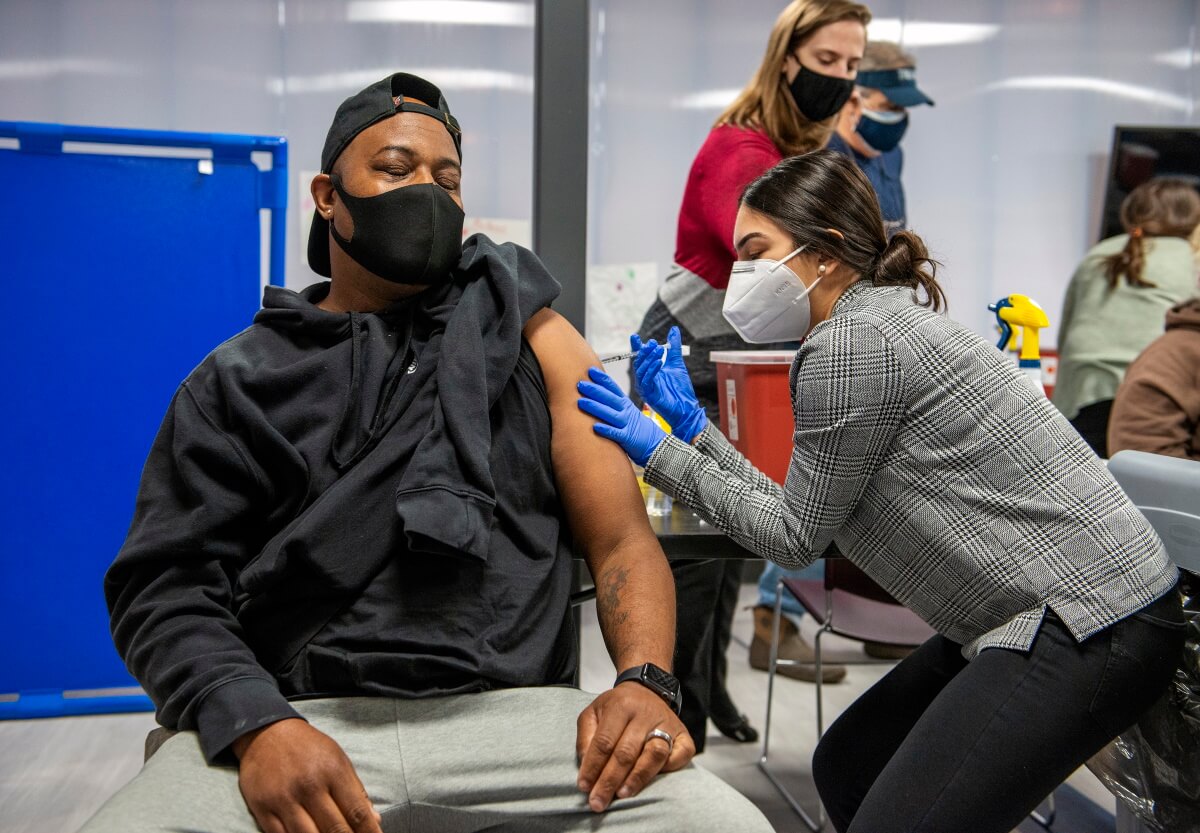
In 2023 alone, School of Pharmacy PharmD students have earned the Outstanding Professional Development Project Award from the American Society of Health-System Pharmacists and the National Innovative Programming Award from the American Pharmacists Association Academy of Student Pharmacists, as well as three regional awards for outreach initiatives addressing immunization, reproductive health, and substance misuse disorder.
In 2021, as COVID-19 vaccines became available and vaccination sites struggled to meet demand, School of Pharmacy PharmD students coordinated with sites across Wisconsin to volunteer hundreds of hours and administer thousands of doses, earning acknowledgment from Governor Tony Evers. A COVID-19 vaccine equity initiative in partnership with the Boys and Girls Club of Dane County that reached more than 600 members of underserved communities was featured in a webinar hosted by the U.S. Department of Health and Human Services.
“Badger pharmacists are doing important, influential work at every level, even before they graduate,” says Martin. “The concepts of leadership are built into our curriculum.”
On, Wisconsin: “As UW–Madison looks toward its next 175 years as an engine of innovation, education, and development in Wisconsin, the School of Pharmacy is poised and excited to continue pursuing the Wisconsin Idea,” says Dean Swanson. “Our Pharmacy Badgers are driven to serve, to lead, and to solve some of the biggest problems in health care, in Wisconsin and beyond.”


